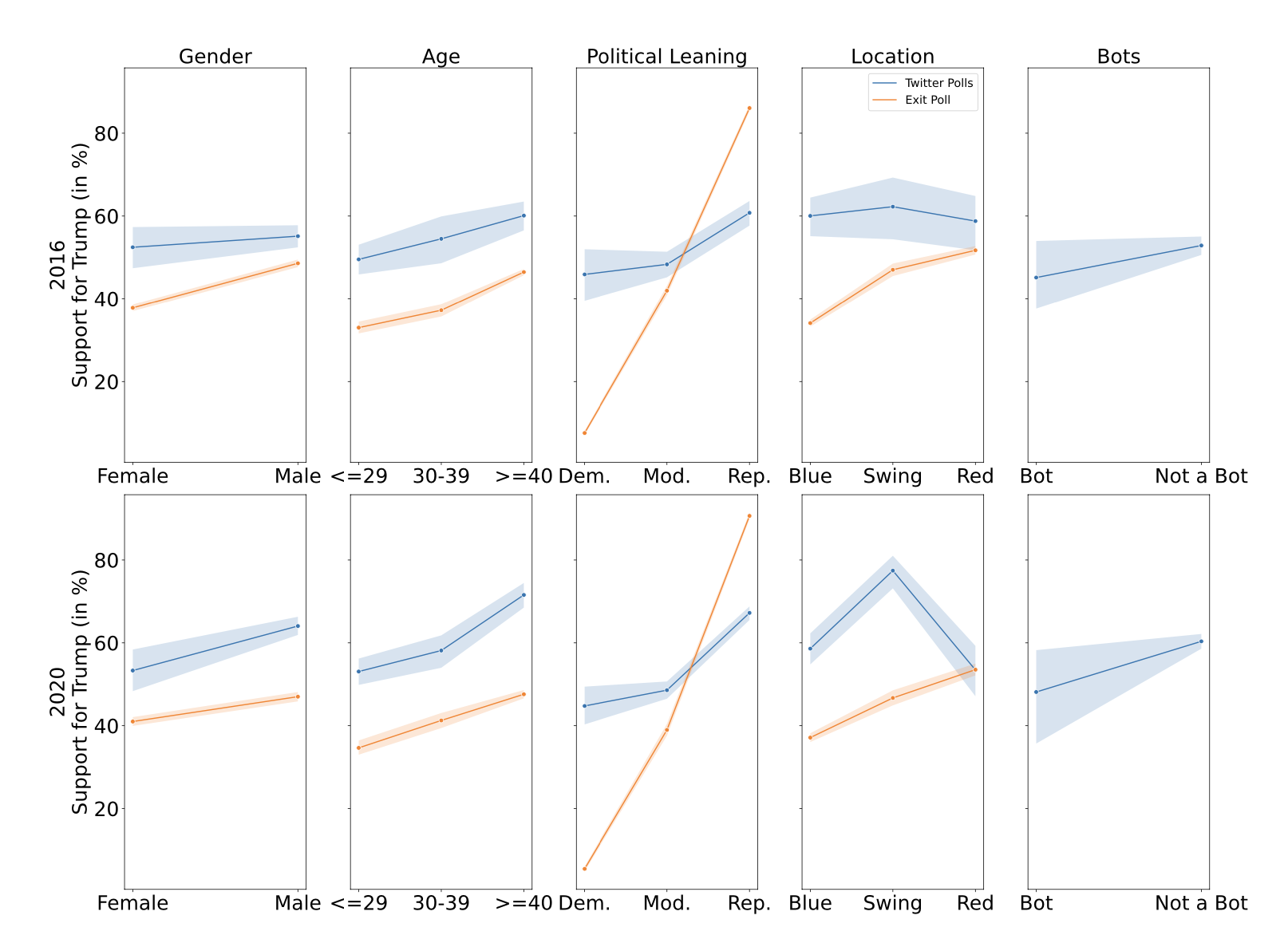Analyzing Support for U.S. Presidential Candidates in Twitter Polls
Published in Journal of Quantitative Description (JQD:DM) and the International AAAI Conference on Web and Social Media (ICWSM), 2024
 Figure: Largest polls from our dataset with respect to vote count.
Figure: Largest polls from our dataset with respect to vote count.
Abstract
Polls posted on social media have emerged in recent years as an important tool for estimating public opinion, e.g., to gauge public support for business decisions and political candidates in national elections. Here, we examine nearly two thousand Twitter polls gauging support for U.S. presidential candidates during the 2016 and 2020 election campaigns. First, we describe the rapidly emerging prevalence of social polls. Second, we characterize social polls in terms of their heterogeneity and response options. Third, leveraging machine learning models for user attribute inference, we describe the demographics, political leanings, and other characteristics of the users who author and interact with social polls. Finally, we study the relationship between social poll results, their attributes, and the characteristics of users interacting with them. Our findings reveal that Twitter polls are biased in various ways, starting from the position of the presidential candidates among the poll options, to biases in demographic attributes and poll results.
The 2016 and 2020 polls were predominantly crafted by older males and manifested a pronounced bias favoring candidate Donald Trump, in contrast to traditional surveys, which favored Democratic candidates. We further identify and explore the potential reasons for such biases in social polling and discuss their potential repercussions.

Figure: The average fraction of votes for Trump among Twitter polls authored by a user of certain inferred gender, age, and political affiliation (blue) in comparison to the fraction of votes for Trump in respective exit polls (orange). Shaded area marks 95% confidence interval.
Recommended citation: Scarano, S. et al. 2024. Analyzing Support for U.S. Presidential Candidates in Twitter Polls. Journal of Quantitative Description: Digital Media . 4, (May 2024). DOI:https://doi.org/10.51685/jqd.2024.icwsm.4. https://journalqd.org/article/view/5897
